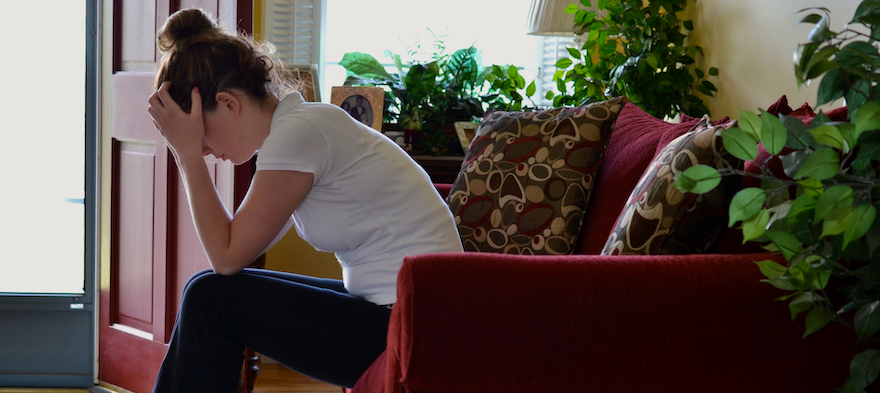
Aug 26, 2019 12:00:00 AM
As I embark on my 15th year in public education, I’m baffled that it still happens to me. After all, this is my 15th “first day”!
I have my first-day handouts copied and I’ve spent the last two weeks of summer setting up my classroom. I’ve incorporated some new flexible seating options for student-choice reading time. I’ve personally purchased school supplies for kids who won’t have them, and I’ve persuaded my well-to-do family members to donate what they can for other random classroom needs as they arise throughout the school year.
I know the exact first-day talk I’m going to facilitate with my students and I’ve memorized the names and faces of all of the young adults who will be entrusted to me this semester. I’ve picked out my first-day outfit—something authoritative but also warm and inviting. My lunch is packed perfectly in my fridge, and I’ve set four different alarms to ensure that I wake up much earlier than I really need to for the very first day of school. I’m all good, right?
Wrong. Not even close.
Quite the opposite, actually. Although I’ve accomplished all of the aforementioned tasks, [pullquote position="right"]I am not anywhere close to “good.” In fact, my stomach aches and crippling anxiety is slowly creeping in.[/pullquote]
The worst part? I can’t sleep, and it happens every year. On the night before the first day of school, I don’t get more than two hours of real sleep. I try, but each time I shut my eyes I envision a plethora of fictitious nightmare teacher scenarios, ones which typically involve running out of material before the dismissal bell rings.
Instead, on the night before the first day of school, I lay awake staring at my bedroom ceiling— should add “paint the ceiling” to the long list of things I didn’t get accomplished this summer—and my mind races at a pace which could rival the speed of Usain Bolt.
The following are the most formidable “what ifs” that rob me of my peaceful slumber:
After running through a never-ending list of painful hypotheticals, my husband eventually wakes and turns to interrupt my inner monologue of paranoia. “What are you doing awake? It’s 2 a.m.! You have school tomorrow!” Then he shakes his head and smiles—because he knows.
“Hon, they’re going to love you.”
I emit a loud sigh of relief. Although I won’t fall asleep for a few more hours, I feel comforted in the moment. Only time will tell, but I hope he’s right.
Lindsey L. Jensen is the 2018 Illinois Teacher of the Year and the 2020 National Education Association Foundation for Teaching Excellence Illinois Awardee. She is Vice-President of the Illinois State Teachers of the Year Chapter, and she serves on the Illinois State Board of Education State Preparation and Licensure Board as an Illinois Education Association Representative. Lindsey is a Teach Plus Policy Alum, and she is an Advisory Board Member for the Region 9 Comprehensive Center. She has over 15 years of educational experience, holds a bachelor’s degree in speech communication from Southern Illinois University, a master’s degree in secondary English education from Oakland City University, and she is finishing her doctorate in the fall of 2020 in teaching and learning from Illinois State University. In her free time, Lindsey travels the country speaking and engaging in educational advocacy. She has delivered over 100 keynotes at Northwestern University, SXSWEdu, The National Association of Teacher Educators Conference, The Raising Student Achievement Conference, and WITCon. She is a proud public school teacher and academic dean in Dwight, Illinois.
The story you tell yourself about your own math ability tends to become true. This isn’t some Oprah aphorism about attracting what you want from the universe. Well, I guess it kind of is, but...
If you have a child with disabilities, you’re not alone: According to the latest data, over 7 million American schoolchildren — 14% of all students ages 3-21 — are classified as eligible for special...
The fight for educational equity has never been just about schools. The real North Star for this work is providing opportunities for each child to thrive into adulthood. This means that our advocacy...
Your donations support the voices who challenge decision makers to provide the learning opportunities all children need to thrive.
Ed Post is the flagship website platform of brightbeam, a 501(c3) network of education activists and influencers demanding a better education and a brighter future for every child.
© 2020–2024 brightbeam. All rights reserved.
Leave a Comment